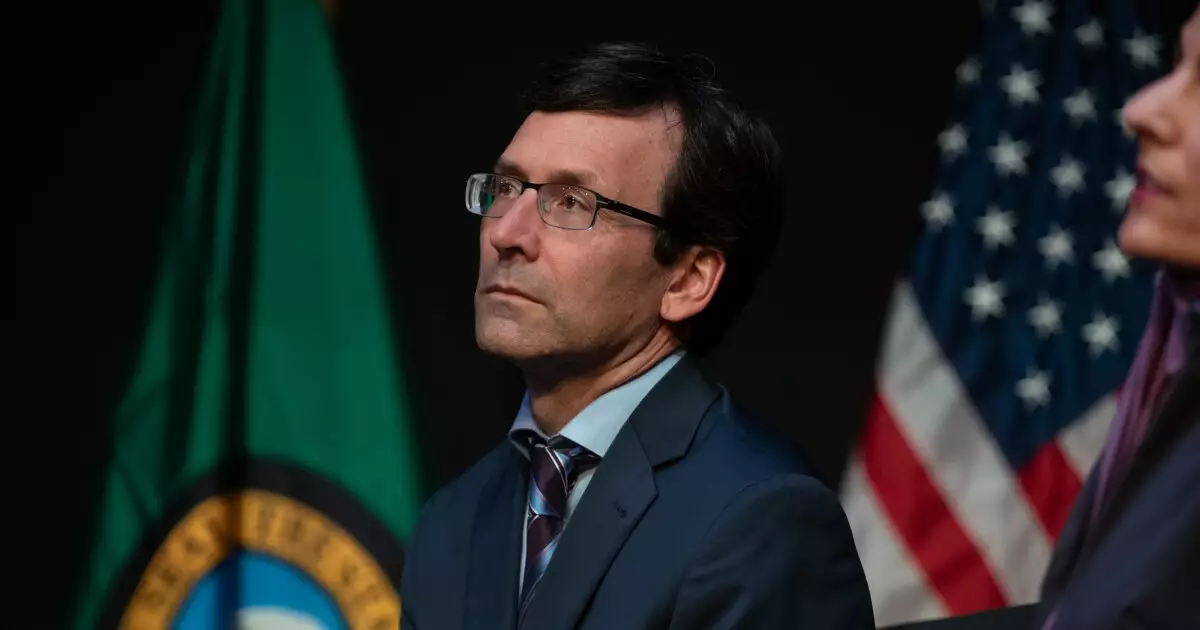It’s becoming increasingly evident that Washington State finds itself teetering on the brink of a financial disaster. After the state House and Senate proudly announced their allied victory in passing their respective budget proposals, caution soon took the forefront as Governor Bob Ferguson decisively cast doubt over their feasibility. In a particularly forceful press conference, Ferguson labeled both budgets inadequate, primarily due to their excessive tax proposals and their reliance on an untested wealth tax, a legislative gamble that he rightly deemed problematic. The governor’s insights ring clear: these budgets are not merely problematic, but perilous to the state’s financial sustainability.
The stark reality is that Washington is not merely facing a fiscal shortfall; what Ferguson has accurately pointed out is a stark projection of a $16 billion deficit looming over the next four years. While proponents of the wealth tax may argue for its innovative potential, the feasibility of such a tax in a state already dependent on a significant influx of federal funding cannot be overstated. Washington’s economy is already feeling the strain, with hospitals resorting to layoffs and essential services facing dire uncertainties. It’s clear we are navigating treacherous waters.
Challenging the Status Quo
The notion that embracing a wealth tax would yield sustainable revenue is rather naïve. Introduced as a progressive solution, a wealth tax may appeal to the left’s desire for wealth redistribution, but its convoluted implementation will likely be met with immediate legal challenges. This is not just a theoretical concern—it’s an imminent reality that Ferguson has bravely pointed out. Creating fiscal policy through untested avenues can unwittingly derail an entire budget cycle, as evidenced by the recent issues confronting the proposed budgets.
What this boils down to is a critical examination of how Washington must adapt its fiscal strategies in the face of an unpredictable federal landscape. With approximately 28% of the state’s budget reliant on federal dollars, continued shifts in federal funding must be anticipated. Even in a climate where critical services like Medicaid and education are at stake, Washington legislators must not lean on fluctuating external support, as this can lead to misguided budget proposals that ignore pressing realities.
The Importance of Fiscal Resilience
Governor Ferguson underscores an essential truth: a stable rainy-day fund is paramount. The push for tax increases to manage budgetary shortfalls not only threatens the stability of essential local services but also undermines the long-term financial health of the state. By draining reserves in a bid to respond to immediate fiscal pressures, lawmakers risk dramatically weakening Washington’s bond ratings, which would ultimately result in inflated borrowing costs for schools and infrastructure—a reverse effect of what many might hope to achieve.
From a fiscal conservatism perspective, the justification of preserving the rainy-day fund should resonate with all lawmakers, regardless of political affiliation. If we fail to prioritize financial resilience now, we will inevitably find ourselves at the mercy of future economic downturns. A responsible governor and legislature should instead work together to identify realistic revenue sources and make deliberate cuts that protect essentials without placing an undue tax burden on residents.
Immediate Action is Essential
It’s time for Washington’s legislators to heed Ferguson’s warning and approach this budgetary crisis with an air of urgency. Compromise is often touted as the hallmark of successful governance, yet in today’s charged political atmosphere, it appears there’s little willingness from lawmakers to reevaluate their proposals genuinely. The impending deadlines loom closer, and yet the spectrum of acceptable fiscal strategies remains disappointingly narrow.
What Ferguson proposes is a thoughtful pivot towards foundational stability that prioritizes realistic projections, fiscal responsibility, and the protection of vital services. Lawmakers should recognize that juggling multiple budgetary frameworks while ignoring stark warnings only accumulates long-term repercussions. Rather than proposing haphazard fixes or relying on wealth taxes that put an unjust strain on the populace, we need to focus on clear-eyed strategies for cutting spending and stabilizing finances.
Indeed, this moment calls for courage in leadership—first, to acknowledge the severity of the financial storm approaching and, secondly, to act decisively rather than allowing political egos to dictate terms that will only serve to complicate an already dire situation. It is essential to reaffirm our commitment to fiscal responsibility and act sensibly, for the economy’s health depends on it.


Leave a Reply